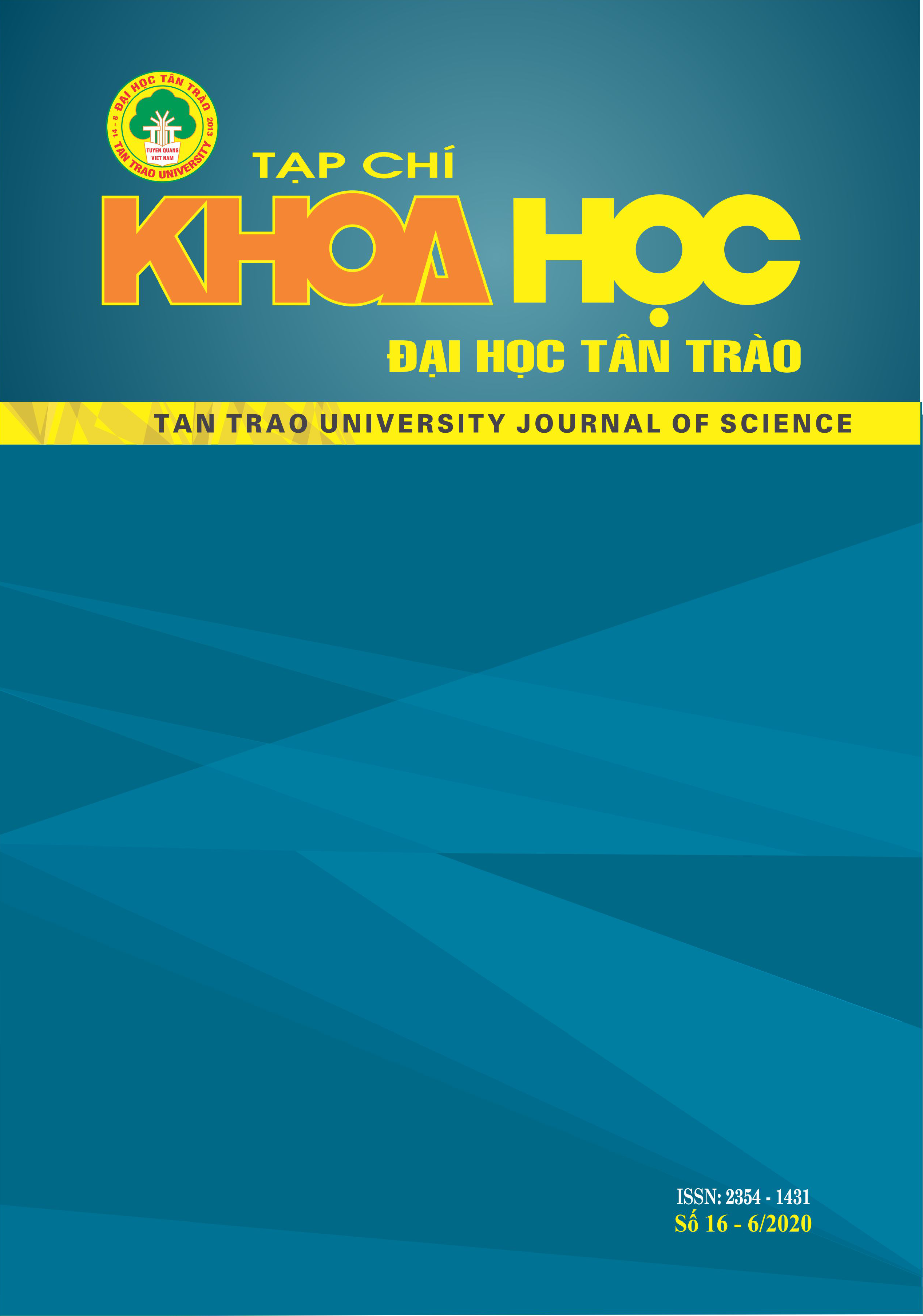GIẢI PHÁP KHAI THÁC NGUỒN HỌC LIỆU PHỤC VỤ BẠN ĐỌC TẠI TRƯỜNG ĐẠI HỌC TÂN TRÀO
DOI:
https://doi.org/10.51453/2354-1431/2020/319Từ khóa:
Nguồn há»c liệu, khai thác nguồn há»c liệu, giải pháp khai thác nguồn há»c liệu.Tóm tắt
Hệ thống nguồn học liệu là một bộ phận có giá trị đặc thù trong nguồn tin
nội sinh của trường đại học, phản ánh thương hiệu, uy tín của trường đại học. Đối với các trung tâm học liệu hoặc trung tâm thông tin - thư viện của các cơ sở giáo dục đại học thì nguồn học liệu của thư viện hỗ trợ đắc lực cho các hoạt động giảng dạy, học tập, nghiên cứu khoa học của bạn đọc. Bài viết này phân tích thực trạng và đưa ra một số giải pháp khai thác nguồn học liệu phục vụ bạn đọc tại Trường Đại học Tân Trào.
Tải xuống
Tài liệu tham khảo
1. Lê Quỳnh Chi (2015), Quản lý nguồn lực thông tin trong thư viện trường đại học, Luận án tiến sỹ khoa học giáo dục, Chuyên ngành: Quản lý giáo dục, Mã số: 62 14 01 14- Tp. Hồ Chí Minh, Trường Đại học Sư phạm Thành phố Hồ Chí Minh.
2. Nguyễn Huy Chương (2009), Nghiên cứu, thiết kê mô hình và xây dựng thử nghiệm nguồn học liệu trực tuyến phục vụ đào tạo chất lượng cao cho một số ngành, chuyên ngành tại Đại học Quốc gia Hà Nội, Đề tài cấp Đại học Quốc gia, Đại học quốc gia Hà Nội, Hà Nội.
3. Trần Thị Quý, Đỗ Văn Hùng, Phạm Tiến Toàn (2014), Quản trị nguồn học liệu số tại Trường Đại học Khoa học xã hội và Nhân văn, Đại học Quốc gia Hà Nội, Kỷ yếu Hội thảo khoa học Hoạt động thông tin -thư viện với vấn đề đổi mới căn bản và toàn diện giáo dục đại học Việt Nam, Nxb Đại học Quốc gia Hà Nội, Hà Nội.
4. Trường Đại học Tân Trào (2019), Báo cáo đánh giá cơ sở giáo dục, tr 62-64.
5. https://ocw.mit.edu/index.htm, truy cập ngày 02/04/2020.
6. http://tttttv.daihoctantrao.edu.vn, truy cập ngày 02/04/2020.
Tải xuống
Đã Xuất bản
Cách trích dẫn
Số
Chuyên mục
Giấy phép

Tác phẩm này được cấp phép theo Giấy phép Quốc tế Creative Commons Attribution-ShareAlike 4.0 .
Bài báo được xuất bản ở Tạp chí Khoa học Đại học Tân Trào được cấp phép theo giấy phép Ghi công - Chia sẻ tương tự 4.0 Quốc tế (CC BY-SA). Theo đó, các tác giả khác có thể sao chép, chuyển đổi hay phân phối lại các bài báo này với mục đích hợp pháp trên mọi phương tiện, với điều kiện họ trích dẫn tác giả, Tạp chí Khoa học Đại học Tân Trào và đường link đến bản quyền; nêu rõ các thay đổi đã thực hiện và các nghiên cứu đăng lại được tiến hành theo cùng một bản quyền.
Bản quyền bài báo thuộc về các tác giả, không hạn chế số lượng. Tạp chí Khoa học Tân Trào được cấp giấy phép không độc quyền để xuất bản bài báo với tư cách nhà xuất bản nguồn, kèm theo quyền thương mại để in các bài báo cung cấp cho các thư viện và cá nhân.
Mặc dù các điều khoản của giấy phép CC BY-SA không dành cho các tác giả (với tư cách là người giữ bản quyền của bài báo, họ không bị hạn chế về quyền hạn), khi gửi bài tới Tạp chí Khoa học Đại học Tân Trào, tác giả cần đáp ứng quyền của độc giả, và cần cấp quyền cho bên thứ 3 sử dụng bài báo của họ trong phạm vi của giấy phép.






